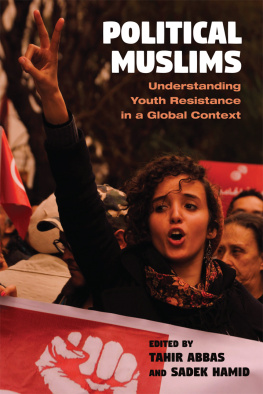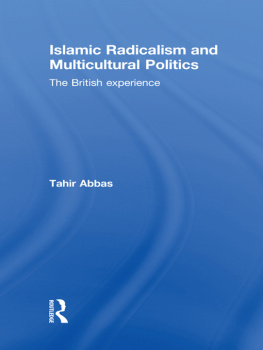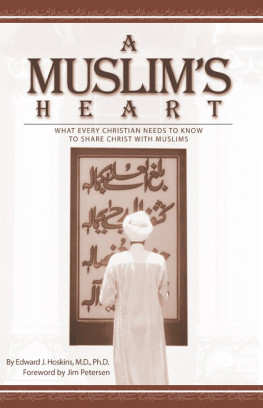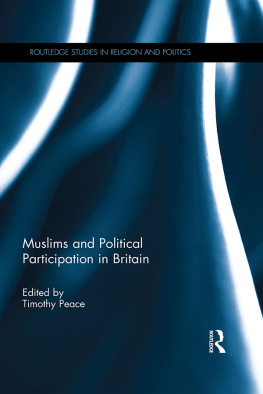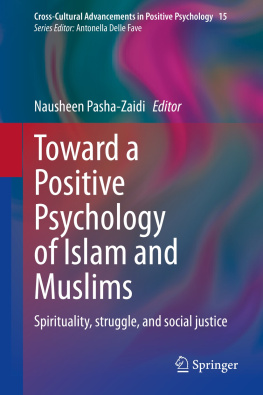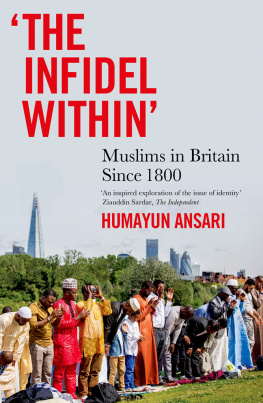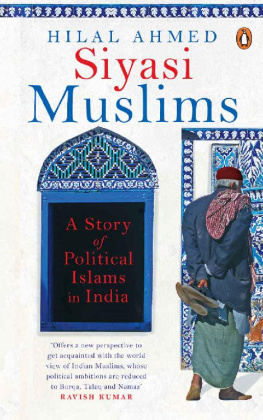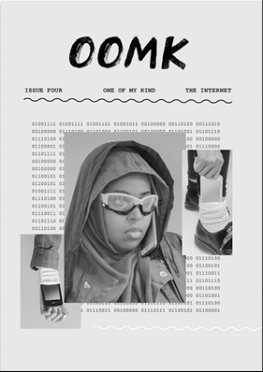Table of Contents
Guide
Page List
Acknowledgments
Given the profound importance of young Muslims globally, we undertook the task of assembling a volume that highlights their roles in combatting extremism by finding new ways of integrating Islam and Islamic thinking into their solutions for problems in various social settings. This book does not reproduce the cultural versus structural conundrum on the question of Muslim political activism or the issues behind radicalization and extremism. It instead attempts to provide an in-depth perspective on how a stigmatized group of young people remain socially engaged despite difficult conditions. The contributions use a social sciences approach to emphasize nuanced instances of participation and engagement in society.
This collection would not have seen the light of day without the tremendous efforts made by all of the contributors, who enthusiastically and patiently remained dedicated to the project. We are thoroughly grateful to them and to Suzanne Guiod at Syracuse University Press for her initial interest in the project and for her encouragement in seeing it through to completion. We are especially indebted to Alison Maura Shay and Kelly L. Balenske at the press for their dedicated support in the books preparation.
Tahir Abbas
Sadek Hamid
Black American Muslim Youth
Navigating Environments, Engaging New Pathways
SAMEERA AHMED and HADIYAH MUHAMMAD
I cant really separate my Black and my Muslim identity. Like I said, I walk around every day, Black, you know. So how the world interacts with me on a day to day basis first, actually, is Blackunless they see my name first, then its Muslim, or no most of the time then its still Black, just with a funny name.
quoted in Sameera Ahmed, Sultan Sharrief, and Cynthia Arfken, Juggling Cultural Identities (2009)
Despite composing the largest percentage of native-born Muslims (40 percent) in the United States (Pew Research Center for the People and the Press 2011), Black Muslims are a severely under-researched group. African American or Black Muslim youth are a unique group that experiences life at the intersections of anti-Black attitudes, institutionalized racism, and increasing Islamophobia. Black Muslim youths experiences differ from those of their immigrant Muslim peers because of their erasure and invisibility as Muslims, which are primarily owing to a societal attempt to define Islam as a religion of recent immigrants and to marginalize it as other rather than see it as part of American history largely through the Black American experience. Black Muslim youth are challenging White supremacy and anti-Blackness while deriving strength and connection from their religious and cultural heritage. They also, however, play a critical role in the indigenization of Islam in America because they are privileged with a cultural capital that allows them to be seen as American and Black rather than as foreign and Other. This chapter aims to increase understanding of Black Muslim youth by highlighting their unique developmental context and to explore the varying pathways they are choosing. This chapter draws on data collected from fieldwork interviews with Black American Muslim young people on this subject matter.
Contextualizing Black American Muslims Developmental Needs
Human development is bidirectional and must account for the impact of the environment on the individual and the individuals impact on his or her environment (Lerner and Kauffman 1985). Furthermore, development must consider the bidirectional interaction of the individuals characteristics, the varying environments the person is embedded within, and the fluidity of development to account for the variety in developmental paths observed (Abo-Zena and Ahmed 2014). How these factors interact and affect Black Muslim youth are discussed later. The individual characteristics of Black Muslim youth, such as physical, cognitive, and personality traits, contribute to varying developmental outcomes. In one interview, a Black Muslim male college student noted a stark example of how physical traits have a significant impact on the lives of Black Muslim youths daily interactions with society: My roommate is Arab, but Im Black. When we are late for Fajr [dawn] prayers at the mosque, he doesnt get it! I cant just leave [the apartment] without my [drivers] license. I keep tellin him, Bro, Im Black. We just cant drive a car without a license and proof [of ownership] in the car. Youre bound to get stopped by the police!
Other examples of person-centered factors such as health, personality, and physical attractiveness. How society perceives these traits influence how a young person interacts and experiences his or her environment. Similarly, what a Black Muslim youth searches for in a religious experience (e.g., fellowship, mentorship, guidance, structure) shapes the experiences that individual seeks out in his or her environment. Racial and religious identities may fluctuate with age, context, and societal events. For example, cognitive development and the task of identity formation may lead some individuals to question their belief system. In addition, Black Muslim youths racial identity may be influenced by the presence or absence of racial socialization opportunities in their environment. In focus-group discussions, young Black Muslim emerging adults described their racial and religious identities as interacting and evolving over time (Ahmed, Sharrief, and Arfken 2009). Some young people described having a vacation from Islam, where they consciously chose not to practice or identify with Muslims and instead to blend in with their Black peers. Black Muslim youth converts often describe this developmental stage associated with introspection that leads to re-evaluating their life, eventual conversion. An individuals identification may fluctuate based on his or her immediate context. One young Black emerging adult discussed her racial and religious identities:
I feel like Im both [Black and Muslim] simultaneously. I can flick and put a spotlight on one and kinda shade out the other for certain settings and stuff. Because Im very passionate about both. I like to be very involved with things that are like Black based... discussions on, you know, where we are in, in the Black community... because that is so much a part of my life. And so much a part of my identity.... And a lot of times like when Im out and about... youre gonna see... Im Black. But at the same time, I umm like, I like to let people kinda find out that Im Muslim. Thats kinda how, how I do it. (quoted in Ahmed, Sharrief, and Arfken 2009)
Despite the importance of individual characteristics, Black Muslim youth are also developing within various milieus. These contextsincluding but not limited to historical, societal, socioeconomic, neighborhood, educational, family, peer, and congregational cultural contextsoverlap and sometimes conflict with each other in terms of cultural values, norms, and expectations. The individuals ability to navigate through these multiple contexts results in varying developmental trajectories. Black Muslim youth are not insulated from the racial realities of the Black community or from the Islamophobia that exists in America. Although Islams roots in America predate the coming of Christopher Columbus, the first wave of Muslims arrived as a result of the forcible enslavement of millions of West Africans during the transatlantic slave trade (Diouf 1998). Despite having their identity and roots stripped from them, many African Muslims resisted their slave masters domination by orally transmitting Islamic knowledge and beliefs (McAdams-Mahmoud 2005), maintaining Islamic dietary restrictions, growing beards, and sometimes wearing turbans (Diouf 1998). Resistance would take different forms from one generation to the next, but these efforts by enslaved African Muslims are still important aspects of Black Muslim youth identity. For example, when asked about factors that contribute to their identity, a young Black Muslim replied, I think about... you know... the whole struggle thing. The coming up from slavery, cause were Black. Were slave descendants, so there is a certain struggle [that we carry on] (quoted in Ahmed, Sharrief, and Arfken 2009). The struggle may represent the initial and collective trauma that continues to manifest itself in anti-Black attitudes, discrimination, and disparities in the lives of Black youth.

